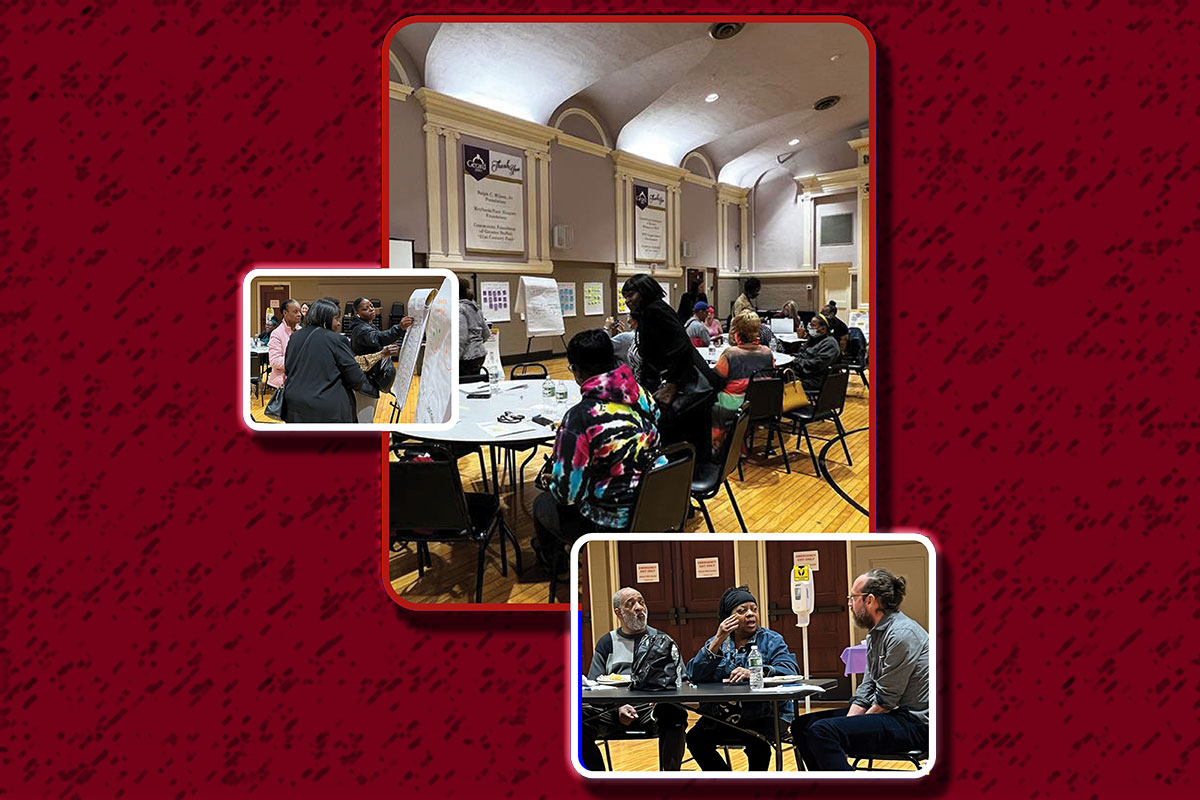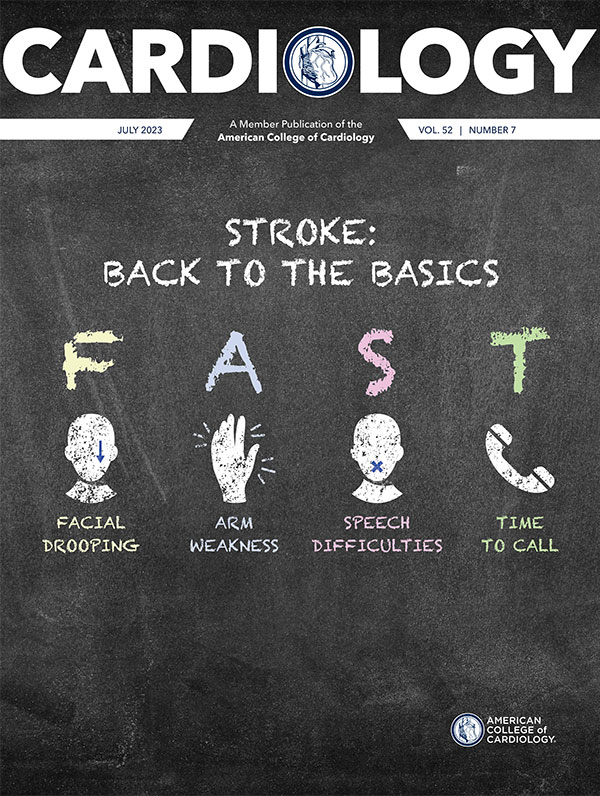Prioritizing Health | Taking Patient Experiences to Heart

Communities with large gaps in social determinants of health are among those at the greatest risk for higher incidences of cardiovascular disease. Understanding the ways communities face challenges and live with heart disease and/or related risk factors is critical to developing tangible support that can optimize care and outcomes.
To that end, with grant support from the CDC/CMSS Specialty Societies Advancing Adult Immunization program, the ACC's CardioSmart team hit the road in May to conduct two patient forums in Buffalo, NY, with the goal of listening to the unique needs of underserved communities and opportunities for medical professionals and the broader profession to support them.
In partnership with Caring Hearts, the Buffalo Healthy Community Stores and local community groups, the ACC hosted 24 individuals at two separate forums. The goal of the forums was to hear directly about lived experiences in managing daily life and heart disease. Participants highlighted the following factors as among their biggest challenges:
- Clinician stereotyping: While most participants had access to regular medical care and support systems through family and friends, a number were not satisfied with their relationships with their clinicians. They cited numerous examples of clinicians assuming low intelligence, poor food and weight management, and laziness based on their physical appearance and coming from a certain neighborhood.
- Food access/security: Built-in family support systems provided many with the option of driving or being driven to a well-stocked grocery store with fresher produce even though the store was farther away and in a different neighborhood than their local store. Several community members expressed the need to be creative later in the month as their dollars were limited for creating healthy meals.
- Healthy eating: Several participants noted challenges in changing their diets quickly as they made meals for their multi-generational families. On the flip side, one patient shared that her son began to take more responsibility to improve his overall health and lose weight, which encouraged her to make similar changes, even though there was "no way [she] could eat the flavorless food he chose."
- Risk factor management: Many expressed making healthier choices over time and did not appreciate their doctors' more rigid approach to "do it all now." Participants who had good relationships with their clinicians, expressed a desire for their doctors to encourage them to "go slow, make small changes but understand that I will never be perfect."
- Lack of heart disease support groups: Most community members did not have access to others facing similar heart issues, making them appreciative of the opportunity to share and learn through the forums.
- Exercise and safety: The benefits of support from family and friends rang loud and clear as participants looked to improve their heart health through exercise. Rather than avoiding exercise due to ongoing violence in the neighborhood, community members sought support and encouragement by "walking with a friend" or asking a "family member to drive them to the local YMCA so they could swim."
- Vaccine hesitancy: All participants had received at least the first round of the COVID-19 vaccine and a majority had received the booster. Even so, some community members said they felt like lab rats and that the vaccine came out too fast. The majority didn't understand how much research went into vaccine development, but a deeper explanation of how vaccines are developed and work seemed to change vaccination perceptions of many forum participants.
- Flu shot and heart health: Not all participants received their annual flu shot, with some saying it made them sick, and few understood the direct correlation between flu vaccination and heart disease. A few patients seemed more willing to receive the vaccine upon hearing about the associated benefits to people with heart disease. Everyone agreed it would matter if their clinicians told them how important the flu shot was to protect their heart.
The ACC will be using the feedback from these and other patient events in other U.S. communities in the coming months to help inform training and guidance for clinicians, as well as enhance CardioSmart materials and resources to support individuals, their families and care providers in addressing the burden of cardiovascular disease.
To access existing CardioSmart resources, including infographics, action plans, decision aids and more, visit CardioSmart.org. Additionally, clinicians are encouraged to visit ACC.org/HealthEquity for clinician-facing resources to help address bias and strengthen conversations with diverse patient populations.
Awareness to Action: National Accountability on Health Disparities
In the Black population in the U.S., there were more than 1.63 million excess deaths, with heart disease the major contributor, and 80 million excess years of life lost from 1999 to 2011, according to research from César Caraballo, MD, Harlan M. Krumholz, MD, SM, FACC, et al., recently published in JAMA.
After a decline in age-adjusted excess mortality in Blacks from 1999 to 2011, rates plateaued and then started to rise again in 2020. The authors write that their "findings demonstrate the potential for progress but indicate the fragility of the gains and herald a need for new approaches to ensure sustainability of advancements."
They note a "sobering disparity" in infants and during childhood for a "markedly elevated" number of excess deaths that was even more pronounced for years of potential life lost. Early adulthood was another period where the disparities became evident and then they generally increased with age.
While specific causes and drivers of these differences are multifactorial and warrant further study, "the sheer scale of the difference requires a revisiting of our national approach to combatting disparities." They also state that an annual publicly reported metric of race-based years of potential life lost may be useful for national accountability and to drive research and implementation of effective strategies to address the disparities.
Clinical Topics: Cardiovascular Care Team, COVID-19 Hub, Prevention
Keywords: ACC Publications, Cardiology Magazine, COVID-19, COVID-19 Vaccines, Cardiovascular Diseases, Vaccination, Influenza Vaccines, Heart Diseases, Social Responsibility
< Back to Listings


